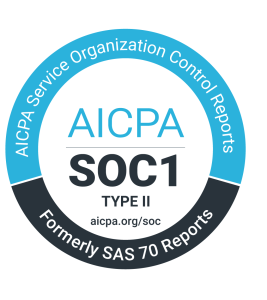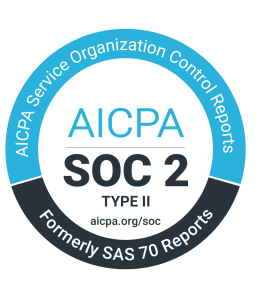Every dispensary owner knows that cannabis credit card processing options are extremely limited. This is primarily due to one overarching fact; major banks and credit unions are regulated by the federal government and cannabis remains illegal under federal law. This creates a high level of risk for any commercial bank and for now, most decline cannabis merchant accounts. Bank officials fear the dreaded SAR, which stands for Suspicious Activity Report. A SAR obligates financial institutions to report any “suspicious” criminal activity. This includes filing a SAR for cash transactions exceeding $10,000 on a daily basis or any other transaction that might signal criminal activity. This includes money laundering and large cash deposits raise red flashing warning signs which of course is a problem for cash-heavy cannabis businesses. It does not matter whether the business is in complete compliance with state and local cannabis regulations or the “Cole Memo” issued by the Department of Justice in 2013 during the Obama administration. The Cole Memo essentially precludes U.S. Attorneys from going after legal cannabis businesses (and individuals) that are in compliance with state laws and regulations.
Under the federal Controlled Substances Act, companies may not assist in the commission of any cannabis “crimes” including providing financial services. However, in February 2014, the U.S. Treasury Department offered banks compliance guidelines for a “Marijuana-Related Business” (MRB) under the Bank Secrecy Act. In theory, the Department’s FinCEN guide provides compliance advice, but it still considers MRB activity to be illegal and retains enforcement options. While the Motley Fool reported that Bank of America, Wells Fargo, and JPMorgan Chase quietly offered account services to select cannabis businesses, the bottom line is that for most financial institutions the heightened compliance and SARs reporting requirements deem it simply not worth the risk. But banking is only the first layer, banks must comply with the credit card companies’ compliance standards in order to issue credit cards through the bank. In reality, a federal law enforcement action against a bank may jeopardize the bank’s standing with the major credit card companies such as Visa®, MasterCard®, American Express®, etc. For most financial institutions, it’s not worth potentially violating the card providers’ terms of use and losing access to credit card services for their traditional clients as well.
Banking on Tomorrow
Currently, 33 states, 3 U.S. territories, and Washington. D.C. have medical cannabis programs in some form, and 11 states permit adult-use sales. In 2019, overall U.S. cannabis sales reached a little over 13 billion dollars. Clearly, the nation is moving on from the federal government’s outdated and draconian approach to cannabis laws and some in Congress are noticing. In September 2019, the House of Representatives passed the Secure and Fair Enforcement Banking Act of 2019, known as The Safe Banking Act. The Act openly permits banks to work with cannabis businesses without fear of federal banking enforcement actions. The Act’s purpose is “to increase public safety by ensuring access to financial services to cannabis-related legitimate businesses and service providers and reducing the amount of cash at such businesses.” While the legislation died in the Senate, the House later included parts of the Act within a COVID-19 stimulus bill. Despite several states deeming medical cannabis as an essential service during the pandemic, the Republican-dominated Senate stripped the ACT from the stimulus bill. As an interim alternative to federal legalization (or removal from the Controlled Substances Act), the Safe Banking Act creates the framework for banks and credit card companies to provide dispensary card processing services. If the Democrats retake the Senate majority in 2021, the chances of passing the Act substantially improve.
Cannabis Merchant Accounts
Fortunately, some banks and credit unions are willing to comply with the Treasury Department’s FinCEN guide and provide merchant accounts for MRBs. The tradeoff is that the fees tend to run much higher than a non-cannabis business account. If a dispensary or other cannabis business can open an account, credit and debit cards then become a viable option for cannabis payment processing. However, until federal banking protections are in place, the cannabis merchants risk having their accounts terminated at a moment’s notice. Many retain backup accounts just in case.
With a cannabis merchant account in place, BLAZEPAY provides Point of Banking debit card processing that is fully integrated with BLAZE Retail Point of Sale (POS). Point of Banking, also referred to as cashless ATM systems, support authorized PIN-based card transactions. Dispensary or delivery customers can pay with their ATM/debit cards and credit cards (with a PIN).
The COVID-19 pandemic forced many dispensaries to adopt new ways to serve their customers. To help with in-store customer flow and delivery payments alike, BLAZEPAY partnered with Dejavoo to provide mobile payment terminals. In addition to delivery services, this enables payment processing for curbside pickup or anywhere on the store floor. Budtenders and delivery drivers love it as BLAZEPAY supports customer tipping.

With cannabis businesses moving solidly into the mainstream of the American business community, sometimes literally on Main street itself, low-cost banking services must be made available to these businesses. Even without full federal legalization, regulated cannabis merchants need the federal government to move forward in some way. The Safe Banking Act is an excellent alternative and we support its eventual passage.



